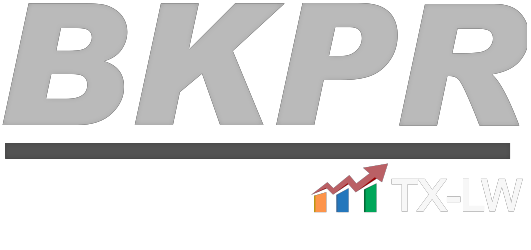The tax year is almost over! Aside from starting to put your books to order, it pays to learn some year-end tax prep tips that can reduce your tax bill.
Staying up to date with your taxes is a must for every business owner. Although you have a few months ahead of the next tax season, the months before the end of the tax year are the best time to make adjustments.
Make large investments before the year ends
When you file your taxes, you want to maximize your deductions but you also want to do it without resorting to illegal means. One way to do this is to make major improvements on the business property or purchase equipment which will qualify as a deduction under Section 179 or the new 100% bonus depreciation.
With these deductions, you may deduct the cost of the qualifying property during the year you put it to service. You can take a deduction for the whole cost or a part of the cost of the qualifying property.
While it may be attractive to use the property write off under Section 179, don’t be tempted to make unnecessary investments. Consider whether your investment will have a positive impact on your business. If yes, then investing in that equipment or improvement may be the right decision.
Establish the right balances for your accounts receivable and inventory accounts
For tax purposes, you only get to deduct uncollectable debt when you do an actual write off. Meanwhile, for inventory, you can deduct the cost of obsolete items that you were not able to sell. While both items are deductible for tax purposes, you need to provide sufficient support to back the deduction.
The inventory rules have changed for small businesses. These rules may allow you to switch to a cash method and deduct your inventory as a material and supply. This can speed up the deductions you take considerably.
So, before the tax year ends, you need to schedule your inventory count and identify which items are no longer saleable. With the help of your credit and collection department, it’s also useful to go over your receivable accounts and identify accounts that are unlikely to be paid off.
Be sure to update your accounting software, if you have one, after you establish the right inventory balance or when you do the actual write off.
Maximize your deduction for retirement plans
When you have a small business, you need to offer additional benefits to employees to keep them in your company. While there are all kinds of perks, retirement benefits are still the winner -and it can also count towards reducing your taxes.
Aside from IRAs and 401(k)s, small businesses are eligible for the Simplified Employee Pension Plan. Moreover, you can deduct your contributions to your employees’ SEP-IRA from your gross income. This is subject to a certain limit and should be the lesser value between 25% of an employee’s compensation (maximum of $280K in 2019) or $56K.
Take note that maximum compensation and contribution limits change each year. In 2020, the maximum compensation is $285K while the contribution limit is $57K.
Here’s another thing, you need to report SEP-IRA contributions on Form 5498 during the year you made the actual deposit to the account. So, you can only claim a deduction for the deposits actually made for the year.
Distinguish legitimate business costs from personal expenses
If it’s the first year that you’re operating a business, you may have incurred a lot of costs. You are eligible for a deduction for pre-startup costs such as the cost for training and travel expenses related to locating suppliers and distributors among other things.
However, not all of the things you lumped in the pre-startup cost may be deductible. Rather than wait until it’s tax season, talk to us now.
Entertainment expenses may also not be deductible, depending on what they are for.
Another thing you need to do is to separate personal and business expenses. This can also help you avoid confusion when its time to do your returns. At the same time, you will know the true state of your business and help you plan other strategies to minimize business taxes.
If separating those expenses becomes too much work, you can always hire a bookkeeper to help you sort everything out.
Consider deferring income or advancing a check if you have a cash-based business
Businesses operating on a cash basis have more flexibility when it comes to managing their taxable income. For tax purposes, income and expense only get recorded when the business received the check or writes a check and sends it to a vendor.
Year-end cash handling is crucial for these businesses since it can help them defer tax payments to the next year by simply collecting a check on the first working day in 2020 rather than in December. To maximize deductions, the business can send payment and record it as an expense even if it’s not cashed out until the next year.
Just like your year-end bookkeeping checklist, it pays to get some last-minute tax planning done so you’ll maximize your deductions. This extra step can help you save taxes legally.



